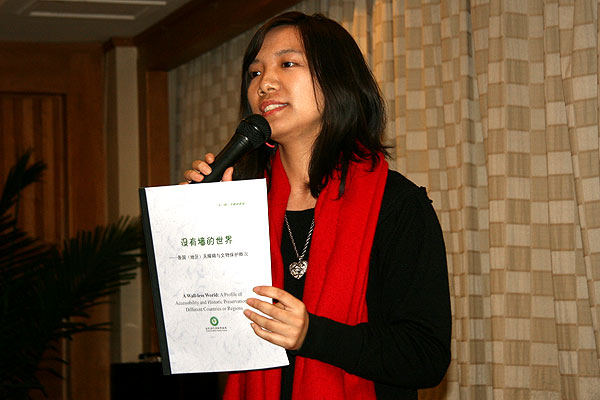Disabled Eager for Wall-less World
Adjust font size:
Debate on historical site protection
Before the Olympic Games, Beijing installed barrier-free access points at famous historical sites such as the Forbidden City, the Summer Palace, Temple of Heaven, and the Great Wall, including vertical conveyors, stepping machines and ramps.
However, it has triggered an enduring debate after the Games. The State Administration of Cultural Heritage described these access points in the Forbidden City and the Great Wall as "temporary," according to an official document published on its website. Many cultural site specialists thought these modifications damaged the sites through wire arrangements and that some ramps significantly detracted from the beauty.
56-year-old Chen Zengshun who suffers from poliomyelitis and has a steel plate implanted along with six nails does not agree with that opinion. "These access points not only enable us to tour the famous scenic spots in person, but also make them accessible for the senior citizens. We must balance the public good with cultural preservation, but it definitely doesn’t mean we should remove them," he said.
 |
|
Wan Fang, one of the writers of the study "A Wall-less World: A Profile of Accessibility and Historic Preservation in Different Countries or Regions," explains her composition to the audience. A workshop that invited over 30 people with disabilities, researchers, and NGO founders was held in Beijing, on December 4. Organized by Enable Disability Studies Institute, it discussed the barrier-free infrastructure conditions in China and decided to together create China's first barrier-free touring map. [CnDG by Jiao Meng] |
The institute released a study "A Wall-less World: A Profile of Accessibility and Historic Preservation in Different Countries or Regions," which provides various examples in eight countries and regions. "We'd like to offer different angles to solve this problem and initiate sufficient discussions," said Wan Fang, one of the writers.
(China Development Gateway by Jiao Meng December 6, 2010)